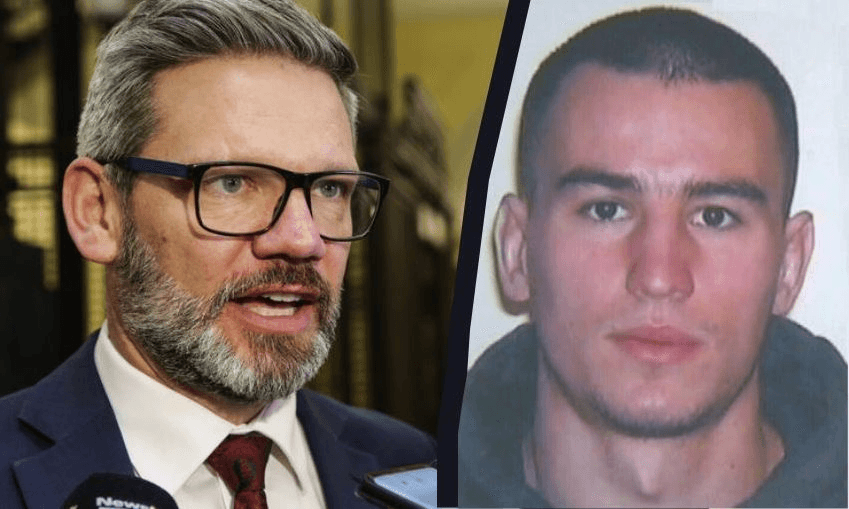In the case of Karel Sroubek, the immigration minister can insist on his blamelessness but seems denied the means of proving it. That may be frustrating or convenient for him – depending on how cynical you are, writes Liam Hehir
There is this Alfred Hitchcock movie, I Confess, about a priest named Michael Logan who hears, in confession, about the killing of a lawyer. The priest cannot reveal this (Church law requires that the seal of confession be preserved even on pain of death) so the perpetrator remains at large. Even when the priest is accused of the killing himself, he maintains his silence.
Iain Lees-Galloway, Minister of Immigration, isn’t quite in the same bind. He has agreed to grant residency to Karel Sroubek, a convicted drug smuggler and people want to know why. The Minister won’t tell us, however, and he also won’t really tell us why he won’t tell us.
The prime minister has invited us to read between the lines. Most people take this as a hint that he would be in serious danger if he was deported to his homeland, the Czech Republic. Or, worse, it could be that his deportation would put other, innocent lives at risk.
Assuming Lees-Galloway wasn’t inclined to make this decision for the Hell of it, this rings true. Sroubek is, after all, a kickboxing drug smuggler who originally came here after claiming to have witnessed a murder. That certainly seems like the background of somebody who might be mixed up with some Very Bad People.
Whatever the precise details, they must have been serious enough that Lees-Galloway did not feel that he could deal with the problem by deporting it. Res ipsa loquitur, as the lawyers say. The thing speaks for itself.
Citing legal reasons, the minister has been careful in what he has said about the basis for this decision. Now that information has come to light that has led to the case being reviewed, he must be doubly careful to ensure that he does not prejudice the decision-making process. He is not free to say what he likes, because he is responsible for the outcomes.
This is a new problem for the minister. As with many of his colleagues, he had no executive experience until last year. Not surprisingly, former National ministers have taken a particular satisfaction in throwing his opposition era statements about transparency, open-government and executive discretion back in his face.
So here we have a person who has made a decision – a tough one – on the basis that he thinks it is the right thing to do. He did this knowing that it would probably give a free hit to his opponents. His opponents have, in fact, taken that free hit and pointed to his own statements to justify their doing so.
He would quite like everybody to take him at his word. And that’s probably fair enough, as far as his good intentions goes. What brief does Lees-Galloway hold for Karel Sroubek?
But that doesn’t assure the soundness of the decision. Perhaps he missed some red flags or failed to ask some obvious questions. Maybe he was unforgivably naive. We are not given to know.
Whether it knows something or not, the National Party has been extremely voluble on the question. As has the populist media, which understands that the New Zealand public will care little for the niceties that justify his conduct in the matter to date.
Like Father Logan, Lees-Galloway can insist on his blamelessness but seems to be denied the means of proving it. That could be very frustrating or very convenient for him – depending on how cynical you are.
But assuming good faith, It looks like an impossible situation. What you do in those circumstances? Other than hide behind a pillar, that is.

